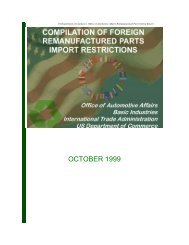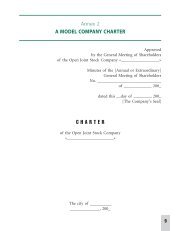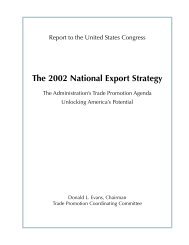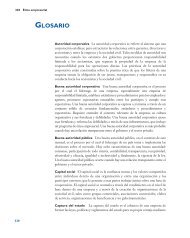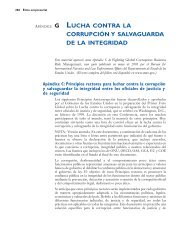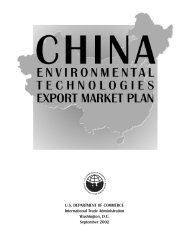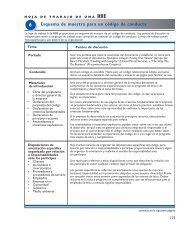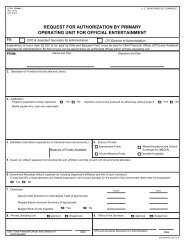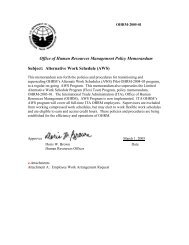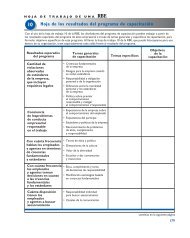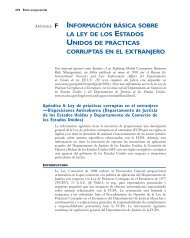Global Steel Trade; Structural Problems and Future Solutions
Global Steel Trade; Structural Problems and Future Solutions
Global Steel Trade; Structural Problems and Future Solutions
You also want an ePaper? Increase the reach of your titles
YUMPU automatically turns print PDFs into web optimized ePapers that Google loves.
In addition, the Administration is pressing Japan to strengthen its general antitrust enforcement by:<br />
• Undertaking more aggressive enforcement activities against collusive cartel activity.<br />
• Strengthening the criminal investigation <strong>and</strong> sanction powers of the Japan Fair <strong>Trade</strong> Commission<br />
(JFTC).<br />
• Taking proactive measures to promote competition throughout Japan’s economy.<br />
• Significantly increasing the JFTC’s staff <strong>and</strong> budget.<br />
• Making necessary changes to create a workable system allowing private parties to bring private actions<br />
for injunctions <strong>and</strong> monetary damages.<br />
• Taking additional measures to ensure the independence of the JFTC when it is transferred to another<br />
agency as a result of the central government reorganization in January 2001.<br />
Opening the Japanese Market to Imports. The continued low level of Japanese steel imports (at a level<br />
well under 10 percent of Japanese domestic consumption) minimizes the foreign competition that could<br />
lower domestic prices <strong>and</strong> stimulate competition among major Japanese firms.<br />
We will focus our bilateral discussions on import barriers by taking the following actions:<br />
• The Administration will continue to press this issue bilaterally on all levels focusing on distribution<br />
barriers, certification requirements <strong>and</strong> restrictive international arrangements, such as the market<br />
sharing arrangements between Japanese <strong>and</strong> European seamless pipe producers which were the basis of<br />
a 1999 antitrust finding by the European Commission.<br />
• The Administration will analyze regional steel trade patterns <strong>and</strong> inquire into why imports into Japan<br />
remain at such relatively low levels when the prevailing prices for steel in Japan are higher than those in<br />
nearby low-cost producing markets such as Korea <strong>and</strong> Taiwan.<br />
• The Administration will monitor import trends, including (1) overall import levels, (2) import levels by<br />
major product, <strong>and</strong> (3) the extent to which imports compete directly with domestic products of the same<br />
product category, or whether imports are only complementary, filling product niches which are not<br />
supplied domestically.<br />
Monitoring the Industrial Revitalization Law (IRL) <strong>and</strong> Its Implementation. The Japanese<br />
government enacted the IRL in 1999 to promote business restructuring. The IRL encourages corporate<br />
mergers <strong>and</strong> spinoffs, as well as the sale of unprofitable businesses <strong>and</strong> the scrapping of excess<br />
capacity.<br />
Incentives which are provided under the IRL include low-interest loans, loan guarantees <strong>and</strong> various tax<br />
incentives. We are concerned that these incentives could be used in a manner that preserves excess capacity,<br />
indirectly subsidizes export efforts, or sustains nonviable enterprises.<br />
We will focus on the following: (1) under what criteria recipients are chosen for receipt of incentives under<br />
the IRL, (2) which companies have been selected or will be selected, (3) the types of incentives that have<br />
been received, <strong>and</strong> (4) whether the incentives which are provided under the IRL are consistent with Japan’s<br />
obligations under the WTO.<br />
Monitoring the New Role of the Development Bank of Japan (DBJ). In 1999, the DBJ extended credit to<br />
several steel companies when Japanese private commercial banks, grappling with balance sheet difficulties,<br />
reduced lending across the board. Such lending raises concerns about government financing to a mature<br />
private industry. Accordingly, we will monitor the DBJ’s new role, to ensure that it is consistent with<br />
Japan’s obligations under the WTO.<br />
180 <strong>Global</strong> <strong>Steel</strong> <strong>Trade</strong>: <strong>Structural</strong> <strong>Problems</strong> <strong>and</strong> <strong>Future</strong> <strong>Solutions</strong>



